There is no word as sacrosanct, as resilient, as the word 'democracy'. It has achieved a moral unanimity akin to 'Christianity' in the Middle Ages. Yet 'democracy', that weathercock for the ages, battles on and its flag is raised by many disparate regimes, from the former communist countries of Eastern Europe to the 'Liberal Democracies' of the EU, to the government of North Korea. But in this universal moral catchphrase there lurks the indefinite aspect of it.
It was TS Eliot who remarked that 'When a term has become so universally sanctified as 'democracy' now is, I begin to wonder whether it means anything, in meaning too many things'. Along with this indefinite aspect, 'democracy' has assumed the mantle of being 'progressive', when compared to other forms of governance. In this, language becomes corrupted, then loses its original meaning. Democracy is often erroneously assumed to be part of that historical evolution (the Hegelian 'End of History' hypothesis) towards some form of ideal state, inherently progressive. It is also assumed to be a more modern form than Monarchy and that it is a natural fit for modern capitalism. Hence the painful aftermath of globalisation realities which sees civilisational states like China, Russia exercising authoritarian 'dominion' within economic liberalism.
Within Monarchical forms, it is likewise assumed that they solely inherited the 'Divine Right of Kings' or the principle of the 'progenitor' as the source of Kingship. However, in reality, most political governance in history has been mixed. The Holy Roman Empire had a system of Grand Electors, which maintained a system of 'Prince Electors' drawn from the seven regions who elected the emperor. Before the French Revolution the monarch worked in tandem with parliaments with considerable executive power. There was traditionally in Europe the input of Customary Law which gave to real popular participation when incorporated into Juridical Law. Therefore, the idea of absolutist behemoths on the one hand and the utopian anarchist democracies on the other are remnants of the post- Enlightenment 'liberalisation' of history- that is the tendency to write histories to propagate a universalist, occidental narrative. The modern epoch has incorporated the myths of democracy and the fundamental assumption, until recently, that the great questions of the day, including forms of sovereignty, had been resolved and universal free trade peace rolled out around the globe.
Kingship evolved from a system of Magicians expected to procure rain and food, to elected Monarchs, to Divine Right Monarchs, to a system of Hereditary Kings. It was through 'Pippin the Short', the Frankish father of Charlemagne who, reigning from 751 to 768, instituted the legacy that Kings were, in France, chosen from the same family. His name is a mystery, him being 6ft 8 inches tall and, although the title might derive from other inadequacies, this seems unlikely as he fathered five children with 'Leutberga from the Danube'. Alas they were sent to a convent, a la Rousseau, and Pippin then met 'Bertha Broadfoot' and had eight children including Charlemagne. This virility pales into insignificance, of course, when compared to the eighteenth-century King 'Augustus the Strong' of Saxony who was reputed to have fathered 366 children. In the Middle Ages the commonly held belief was that the people were in fact the crucible of power even though hierarchical structures, a kind of 'aristo-democracy' prevailed: 'Populus et proceres' (people and nobles). Charlemagne incorporated the sacred into Kingship and the rule to keep the Christian faith. Christianity, at the time of Pope Urban and the First Crusade of 1095 was enshrined over western Europe; and, despite the privations of life, faith was all encompassing.
With Richard the Lionheart as King of England in 1189, the idea of chivalric Kingship was confirmed; a Crusader King, albeit of French stock, who took his sword 'Excalibur' with him to the Crusades. A contemporary described him as 'having the valour of Hector, the heroism of Achilles, he was not inferior to Alexander...' Richard promoted a cult of personality about his Crusader exploits and by the thirteenth century he was fighting Lions with his bare hands, and pulling out their hearts, probably to the dismay of the David Attenborough's of the time. So, Kingship became mythologised, almost suprahuman, of legend. From then on there was a gradual movement away from this, especially through the Enlightenment vindication of reason and law. Jean Bodin had theorised the sovereignty of Kings when, in 'La Republique' (1576) he attempted to liberate Kingship from the tutelage of the Pope and Emperor. Bodin concluded that the source of power derives from the law, but that 'Princips legibus solutus' (The Prince is not bound by the law). It is a more solid foundation than divine right for it places an absolutism under sovereignty. It effectively placed a secular visage on power without ever losing the appeal to a quasi-divine theology. The entire edifice of Bodin's sovereignty, even though he maintained the base of power could be aristocratic or democratic, then shifted, through the Treaty of Westphalia (1648), as the Holy Roman Empire dissolved- to configure the modern idea of the 'nation state'. This was a kind of watershed for Kingship, although it soldiered on to the Modern age of the nation state, losing its de facto and de jure powers to representative assemblies.
The Age of Westphalia, bearing its fruit in the nineteenth century, sits now under dark clouds. There is a resurgence of civilisational empires (China, Russia). The nation state has failed; the ruin of catastrophic World Wars were the curtain call.
Rather than universalist liberal mores, the weltanschauung must be cultural and participatory, we must go back to the Greeks, or even pre-history to redefine ourselves. This is where Monarchy could return in Arthurian form. In an age of insecurity, of loss of meaning, of spiritual wastelands, there is a role for the Weberian charismatic leader. Milton coined the phrase 'government of himself' to describe the rule of Oliver Cromwell. By this he meant that, before taking office, he had acquired commensurate skills in keeping with such high responsibility. He had surpassed himself, achieved greatness, not had greatness thrust upon him. This is in direct contrast to the clercs of the moderns, dressed to please no-one except themselves in the pursuit of career.
Monarchy has been racinated by modernity; but whilst the atomisation of the individual has made both democracy and monarchy superfluous, there exists a harking back, a longing for culture and community. This is seen now in Populism, Communitarianism. As Culture is replaced by utility, by economy, as the Church recedes into liberal anomie, the homesickness of dislocation is remembered in the Coronation, in tradition, in custom. The English reverted to Monarchy with Charles II even though Cromwell removed the head of Charles I in 1649. It is, like civilisations, like ideology, ephemeral. Therefore, in the post-modern age, when Charles III ascends to the British throne, one is struck by the symbolism of the role; its collapse into the realm of 'spectacle'. The incessant talk of the media is one of modernisation, a monarchy for the times. Like the politicians of the modern breed, going to football matches, photographed with warm beer in a cosy pub, wearing rainbow t-shirts. In liberal universalism everything is reduced to the same. The Churches follow suit, becoming a social think tank, up to date on all the important issues. In this vacuum Europe looks for leadership and a sense of place, a belonging. Perhaps there is a role for Kingship here, above the Hobbesian petty war of all against all.
In this the modern Charles III must rekindle, not only Monarchy, but meaning, if Monarchy is to take up a deeper sense. As Charles II did on his return from exile to take the throne after the parliamentary hiatus, in 1660. If there is a role for Monarchy it would be a remembering of virtues, of particularity over universalism, and a unifying mission. Yet already, as the Coronation nears on the 6th May, the thunder clouds of liberal iconoclasm have sounded. The Koh-I-Noor diamond, the famous stone handed to Queen Victoria by Duleep Singh, who had inherited his father's Sikh Empire, will not sit on Camilla's head. Instead, she will wear another crown, so as not to offend India, who lay claim to the diamond. The Koh-I-Noor is shrouded in superstition and horror.
When the Persians looted the Mughal Empire in the eighteenth century they inherited the Peacock Throne, encrusted with diamonds and rubies and gold, said to cost twice as much as the Taj Mahal. In a coup d’état initiated in 1747 by his nephew Adil Shah, a kind of Macbethian character, Nader Shah was assassinated. On his deathbed he refused to disclose the whereabouts of the diamond ( although he had lost his tongue through torture by that stage). Adil Shah decided to put to death all sons and grandsons of the Shah except one: the grandson of Nader Shah- Shah Rukh. He also refused to talk, and, in the spirit of extravagant Persian assassinations, he had molten gold poured over his face. However, even before the molten metal had hardened, mask like, on the ill- fated young Shah; an agent was smuggling the ‘Koh I Noor’ to Afghanistan, to the Amir, Shah Durrani.
Now the ‘Koh I Noor’ was reputed to give eternal riches to those who owned it. Yet it had begun devouring its owners; just like the tumour which ate away Shah Durrani’s face, destroyed his good looks and his entourage of mistresses. He died in 1772 and the diamond fell to Shah Shuja who had been in a tussle with his brother for the title of ‘King of Afghanistan’. There was a law in Afghanistan that forbade blind men from assuming the throne; so, Shah Shuja, a kind of Machiavellian character, had his brother’s eyes gouged out by hot needles. After being deposed in 1809 he fled to India and , for the price of Ranjit Singh’s hospitality, gave up the ‘Koh I Noor’. Ranjit Singh was the binding force of the great Sikh Empire. The diamond now passed, through the usual court assassinations, intrigue and amputations, to the five-year-old Emperor, Duleep Singh. The elder Singh’s flirtations with the British were to prove costly and the Second Sikh War concluded in 1849 meant that all the Maharajahs property, including the diamond, were ceded to the British.
Queen Victoria, understandably, was reluctant to take ownership of the diamond when it was presented to her by the East India Company, although she was assuaged when told that it only maimed and destroyed its male suitors. Camilla, the Queen Consort, will not wear the Koh-I-Noor either. She will wear Queen Mary's Crown. Perhaps fittingly, King Charles III will wear the St Edward's Crown which was made for Charles II in 1661 when he returned to re-establish the Monarchy after the Interregnum. Time will tell if Crowns and Coronations survive the modern penchant for cultural nihilism and whether Charles III can use the office to rekindle some guiding light for Britain. Nevertheless, it is probably best to veer on the side of caution and lock the 'Koh-I-Noor' in the Tower of London.
Photo Copyright House of Lords 2022 / Photography by Annabel Moeller
Read also
NatCon, the Debacle of Democracy and the Wolf In Sheep's Clothing
Democracy, despite common parlance, is not a modern construction. There has always been democracy in Europe; in fact, despotic regimes were very rare.
Brian Patrick Bolger
The War on Bugs
If it wasn't for Covid, War and Bugs the master race of Homo Sapiens would have little to occupy themselves with. Now it is Bed Bugs, in Paris and London, encircling European cities like the plague of Oran.
Brian Patrick Bolger
'Post-Liberalism' – Reflections on the Revolution in Europe
We have now entered the stage of post-Liberalism. The European elections have seen a move to traditionalist parties in most states.
Brian Patrick Bolger
Even the Poets are Killing: Fico and the New Iron Curtain
The Slovak 'Lee Harvey Oswald' was a 71 year old poet. It's what poets do these days. No waltzing around daffodils in the Lake District or smoking Opium a la Coleridge.



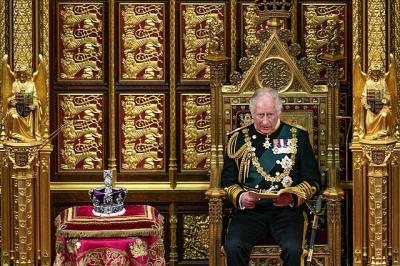

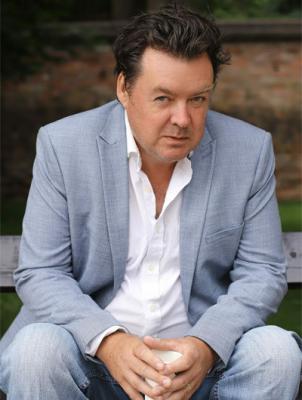
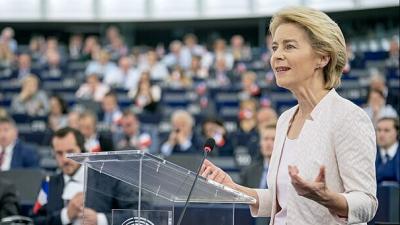

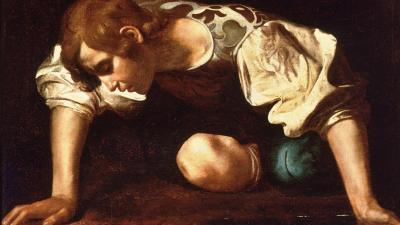



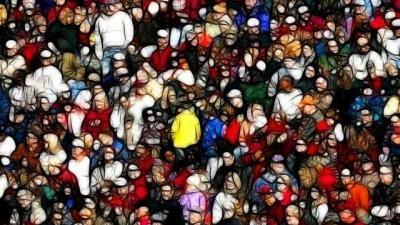

Comments (0)